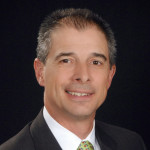 In our last two summer weeks Amy and I traveled 3,600 miles across the Eastern Seaboard, most of it in her convertible, off the Interstate, top down. We followed our younger son and his drum and bugle corps to the world championships in Indianapolis. On that Saturday we passed by Charlottesville, blissfully unaware of all that was unfolding, and the fallout that still threatens the soul of our nation. After a whirlwind Saturday, unpacking and repacking for freshman orientation at Furman University, we deposited our “baby.” Empty nest, here we come ….
In our last two summer weeks Amy and I traveled 3,600 miles across the Eastern Seaboard, most of it in her convertible, off the Interstate, top down. We followed our younger son and his drum and bugle corps to the world championships in Indianapolis. On that Saturday we passed by Charlottesville, blissfully unaware of all that was unfolding, and the fallout that still threatens the soul of our nation. After a whirlwind Saturday, unpacking and repacking for freshman orientation at Furman University, we deposited our “baby.” Empty nest, here we come ….
From the foothills of the Piedmont we headed north, through the Shenandoah Valley and into Alexandria, Va. It turned out to be serendipitous, visiting Mount Vernon and reflecting on the ways some of our presidents are remembered. Presidential historian David McCullough ended our museum tour with timely words: “Teaching the world to be great, one must be truly good.” Let that sink in.
Crossing the Potomac, we relaxed a few days in a little farm house on the bank of the Choptank River, but then it was Friday, and “Sunday’s [always] a comin’,” so we headed home, pedal to the metal. Taking in all the trinkety disgrace that all beaches have become, from Rehoboth in Delaware to Virginia Beach south of the Chesapeake Bay, we detoured through Danville, Va., before a last few Interstate miles.
It wasn’t as if we spent any time with the people on those rural routes, but just smelling the endless cornfields in their back yards, the rain rising on the long plains in front of us, feeling the humid air, tasting the salty winds, felt a little like a personal introduction. And personal pride always warms your heart: landscaped farms, manicured lawns, hanging baskets, decorative flags, bloom-kept window boxes. Beautiful land, beautiful homes, beautiful people.
We’ve heard so much about these good folks, recently, and how so many of them, the hard-working, heart-of-America types, have lost their jobs, and in their despair over that lost dream have turned to opioids to numb the pain, or to an unorthodox president offering another kind of drug. I get it — and I could get on board with it if only the hope he is pedaling was based in reality. It’s not.
Those jobs are not coming back.
I suspect there will be enough temporary gains to rally a few crowds, but I graduated from high school in a Southern mill town that boasted a half-dozen textile plants. Some of my classmates drove their new Camaro Z/28s to graduation because their chosen extracurricular had been the third shift — and for a high school senior with a new hotrod, the sky seems the limit. I think there is one functioning plant in that county now, however, and I understand it only takes maybe one employee per shift to flip the switches for the automated looms that produce more than an entire working class ever could — and which never calls in sick or comes in hungover or argues with the boss over time-and-a-half.
So you can imagine, if you care to be honest, how many textile jobs are coming back to Clinton, and who’s going to be driving all of America’s taxi cabs when Google finishes beta-testing its driverless cars (maybe even before the next election). And if you can continue looking reality in the eye, you don’t have to ask what business owner with any savvy will opt to pay benefits and argue over mileage rates, when they can just plug in the address and send a fleet of driverless big-rigs down the Interstate. We already pump our own gas and check ourselves out at the grocery store. Some fast food restaurants are farming out “Can I Take Your Order” to a call center half a world away, and hospitals are experimenting with the Pakistani surgeon who controls the robot that just did your open heart surgery.
Those jobs are not coming back.
We can stick our head in the sand if we want, cheer for the lie at all the campaign rallies — or we can start envisioning a new world which values people over productivity, the common good over common goods. Most of the robot movies these days are dystopian (they’re coming to destroy the world), and this much is true: they are coming (they’re actually already here), and they are going to take over much of what most of the world has always done.
But fear not. The machine that just took away your menial job also just freed you to be truly creative, loosed you from that prison of just making widgets, slaving just for money, and opened to you miles and miles and endless miles of beautiful possibility. Someone just needs to start envisioning those possibilities for us.
Hard truth is like the country road: it’ll take you longer to get there, but there’s no substitute for seeing the real thing.
